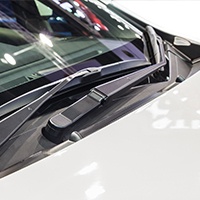Brakes provide an important function for your vehicle. They need to be maintained to perform their best. The brake caliper, brake pads, and brake rotor are the primary parts of your car disc brake systems. The brake pads and rotors wear out over regular use, but brake wear varies based on many factors.
Check out this video on how your brakes work.
Your driving habits affect your brake lifespan:
How hard you push on your brakes impacts how long your brake pads will last. While some people ride the brakes and stop abruptly, others gently coast to a stop.
Smooth, gradual braking increases your brake pad lifespan.
Environmental conditions impact your brakes:
Stop-and-go traffic in the city is much harder on brakes than driving out in the country. Long straight roads mean braking is needed less often.
Driving in areas with steep elevation changes can quickly wear out your brakes. This is because drivers tend to ride the brakes to control downhill speed.
Instead, try and pulsate your brake use to avoid overheating the brakes. Heat causes premature wear and possible failure. Hold the brakes down for 5 seconds, then release for 2-3 seconds. Repeat as needed and adjust to control your speed.
Brake pad design:
Brake pads come in different compounds for different driving needs.
Hard compound brake pads have a longer life, but usually, need to be warm before they perform well. These are more common in high-performance cars.
Soft compound brake pads perform better at low speeds, such as in urban areas. In extreme driving conditions they can get too hot they can melt the pad’s compound onto the brake rotor. This reduces brake performance.
Brake materials:
The materials used in the brake rotor and brake pad also factor into the brakes’ durability.
Carbon-ceramic brakes last longer than standard metal brakes. But they need to be warmer than standard brakes to be effective. Carbon-ceramic brakes are very expensive and are mostly found on high-performance cars.
Steel or other metal brakes are more common and suit a variety of driving conditions.
How to tell if your brakes need replacing
Under ideal conditions, most brake pads need to be replaced after about 50,000 miles.
Some only last 25,000 miles, while others can last for over 60,000 miles. It all depends on the factors listed above. Warning signs that your brake pads are wearing out, include the following:
Brake pad thickness
You should inspect your brake pad thickness on a regular basis. Whenever your tires are rotated or your oil is changed, have your mechanic inspect the brake pads.
Squealing or scraping noise
Brake pads have a small metal hair at the very bottom to let you know when they close to running out of brake material. When they start making a squealing noise, go to your mechanic right away.
Jittery or vibrations while braking
If braking becomes jittery or vibrates then your rotors may be warped.
Some treatments include cleaning or grind down the surface of the rotor in order to make it flat again. Most of the time though it’s less expensive, and safer to just replace the brake rotor.
If the brakes look worn out or lose performance, they should be replaced. If there are any unusual noises or sparks coming from the brakes, have them inspected by your local repair shop right away.
Good, functional brakes are key to safe, predictable braking and safe motoring!




